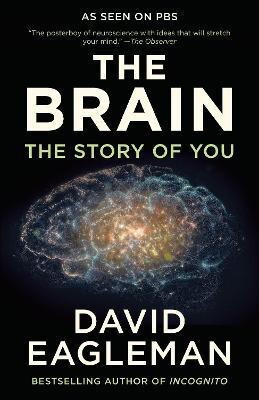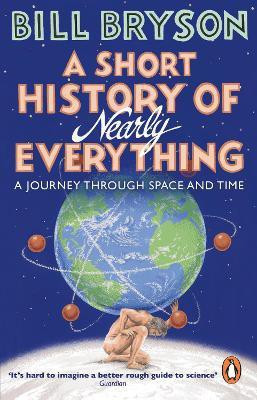
Feynman Lectures on Physics (English, Undefined, Feynman Richard P.)
Share
Feynman Lectures on Physics (English, Undefined, Feynman Richard P.)
4.7
145 Ratings & 7 Reviews₹657
₹999
34% off
Available offers
T&C
T&C
T&C
T&C
Delivery
Check
Enter pincode
Delivery by1 May, Thursday|₹65
?
View Details
Highlights
- Language: English
- Binding: Undefined
- Publisher: Narosa Publishing House
- Genre: Science
- ISBN: 9788185015842, 9788185015842
Services
- Cash on Delivery available?
Seller
Description
This volume includes many exciting concepts of Physics, concentrating on the theory of quantum mechanics and presenting the central ideas in a comprehensible manner.
Summary Of The Book
The Feynman Lectures on Physics (Volume 3) is a comprehensive physics textbook by Richard P. Feynman, Robert B. Leighton, and Matthew Sands, based upon the lectures given by Feynman to undergraduate students at the California Institute of Technology (Caltech) from 1961 to 1963, and also some lectures given to the sophomore class in May of 1964. This volume focuses primarily on quantum mechanics. The Feynman Lectures are considered to be one of the best and most sophisticated college level introductions to physics.
The book contains 21 chapters in all. Some of these are Quantum Behavior, The Hamiltonian Matrix, Probability Amplitudes, Angular Momentum, Symmetry and The Conservation Laws, Semiconductors, Operators, and The Schrödinger Equation. A wide array of concepts have been discussed within these chapters, ranging from the relatively simpler ones like principles of quantum mechanics, crystal diffraction, the exclusion principle, and probability amplitudes, to the more complicated topics like superconductivity, the Meissner effect, measuring a nuclear spin, and quantum mechanics of angular momentum. The book is replete with experiments and diagrams to explain the concepts. After 21 chapters, there is Feynman’s epilogue, followed by an Appendix and an Index.
Feynman's effective classroom style remains intact in this volume, a valuable work by a remarkable educator. The entire book has a great conversational tone and makes for an interesting and captivating read. Feynman provides excellent examples and thorough explanations, along with honest opinions when controversial issues arise.
When asked about the origins of his lectures, Richard Feynman believed that the whole thing was only an experiment. Evidently, Feynman’s experiment was hugely successful and was adapted into a book that has been credited as the best in its field for decades. For someone who wants to be acquainted with the basics of quantum mechanics and move on to the more complex systems like propagation of electrons in a crystal, Feynman’s lectures are an essential read.
About the Author
Richard Phillips Feynman (May 11, 1918 – February 15, 1988) was an American theoretical physicist. For his contributions to the development of quantum electrodynamics, Feynman received the Nobel Prize in Physics in 1965.
Other works by Feynman include Perfectly Reasonable Deviations From The Beaten Track, Surely You're Joking, Mr. Feynman!: Adventures of a Curious Character, QED: The Strange Theory of Light and Matter, The Meaning of It All: Thoughts of a Citizen Scientist, and Feynman's Lost Lecture: The Motion of Planets Around the Sun.
He gained a reputation for taking great care when giving explanations to his students and for making it a moral duty to make the topic accessible.
Although born to and raised by Jewish parents, Feynman was not only an atheist, but declined to be labelled Jewish on supposedly ethnic grounds. He married thrice, to Arline Greenbaum, Mary Louise Bell, and Gweneth Howarth. He died of a final attempt at surgery for liposarcoma, a rare form of cancer.
Robert B. Leighton (September 10, 1919–March 9, 1997) was a prominent American experimental physicist who spent his professional career at Caltech.
His book, Principles of Modern Physics, published in 1959, was an influential and standard textbook.
His work over the years spanned solid state physics, cosmic ray physics, the beginnings of modern particle physics, solar physics, the planets, infrared astronomy, and millimeter and submillimeter wave astronomy.
Matthew Sands is an American physicist and educator. After earning a Ph.D. in physics from the Massachusetts Institute of Technology in 1948, Sands joined the MIT faculty. In 1950, he moved to Caltech. Sands was the first to show the importance of quantum effects in electron accelerators. He persuaded Richard Feynman to accept the 1965 Nobel Prize in Physics even though Feynman was averse to such honors.
Read More
Specifications
Book Details
| Imprint |
|
Series & Set Details
| Series Volume |
|
University Books Details
| Specialization |
|
Ratings & Reviews
4.7
★
145 Ratings &
7 Reviews
- 5★
- 4★
- 3★
- 2★
- 1★
- 113
- 22
- 9
- 0
- 1
5
bst book for undergrad course
its an excellent book.....best book available for any under grad course in physics..really helps the students lot to gain conceptual clarity ..i would recommend this book for the students who are voracious readers of physics and loves the subject....
READ MORERajarshi Bhattacharyya
Oct, 2013
0
0
Report Abuse
5
The Feynman great lectures on physics
Flipkart delivers it before standard date and in perfect packaging & condition.so flipkart is doing good job.
Now, This book lectures(chapters) having intensity of nuke like. Like all other books of Dr. Feynman this is a masterpiece for quantum mechanics&theory .Treatment is more theoretical than mathematical so this book required great amount of focus like the genius sitting in the classroom of cal tech at the time of lectures given by Feynman.Some chapters are advance and directed you to t...
READ MORENow, This book lectures(chapters) having intensity of nuke like. Like all other books of Dr. Feynman this is a masterpiece for quantum mechanics&theory .Treatment is more theoretical than mathematical so this book required great amount of focus like the genius sitting in the classroom of cal tech at the time of lectures given by Feynman.Some chapters are advance and directed you to t...
ankit saxena
Certified Buyer
Dec, 2012
0
0
Report Abuse
4
Tremendous text, pathetic book quality
There is nothing new to write abt the feynman lectures.
The book itself however has pathetic page quality, and the binding came loose within a week
READ MOREThe book itself however has pathetic page quality, and the binding came loose within a week
Avik
Certified Buyer, Bardhaman
Jul, 2014
3
1
Report Abuse
5
Certain things do not need any judgmental review.
Certain things do not need any judgmental review. Among them, is Feynman's "Lecture in Physics". It is a collection of lectures trying to make the reader perceive the phenomenon from its sequential reasons and its effects. A must read for any one who would like to gain wisdom than the formulated knowledge, something which most text-books fail to offer.
READ MORETrinath Kar
May, 2014
1
1
Report Abuse
4
Pretty good
Ok, will not mention anything about the book content(actually it didn't help me much,may be I'm bad in physics). But as usual Flipkart service was excellent. Recieved the book in all well health. Enjoyed the service.
READ MOREDebattam Das
Certified Buyer, Kolkata
May, 2017
0
0
Report Abuse
5
great book
great book with deep conceptual meaning. make you see the physics the you have never seen.
what the hell yar i have expressed myself in seven words. and they want 100 words.
READ MOREwhat the hell yar i have expressed myself in seven words. and they want 100 words.
ankit
Certified Buyer, Gauchar
Sep, 2014
0
0
Report Abuse
5
Basics
Mr. R P Feynman needs no introduction, I would say, that I find myself merely standing in front of a colossal structure, while reviewing the book. Matter is presented in a lucid way. I can bet, that if you have given deep thought into Physics, and had problems, these books will surely dissolve that part. Enjoyment!!! Thanks to Flipkart, for delivering within 2 days and also in such a good condition.
READ MOREAyan Dutta
Certified Buyer, Kolkata
Nov, 2013
0
0
Report Abuse
+
All 7 reviews
Have doubts regarding this product?
Safe and Secure Payments.Easy returns.100% Authentic products.
Back to top






